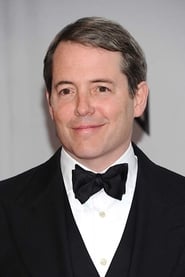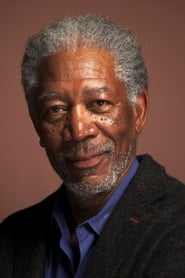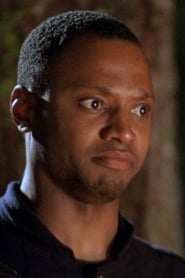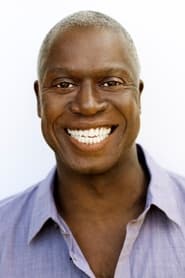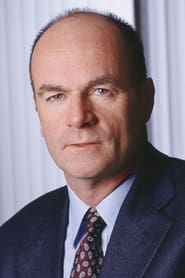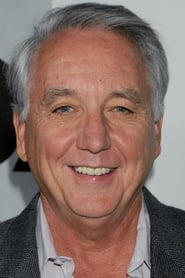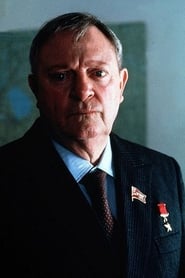Cast
View AllMatthew Broderick
as Col. Robert Gould Shaw
Denzel Washington
as Pvt. Trip
Cary Elwes
as Maj. Cabot Forbes
Morgan Freeman
as Sgt. Maj. John Rawlins
Jihmi Kennedy
as Pvt. Jupiter Sharts
Andre Braugher
as Cpl. Thomas Searles
John Finn
as Sgt. Maj. Mulcahy
Donovan Leitch
as Capt. Charles Fessenden Morse
JD Cullum
as Henry Sturgis Russell
Bob Gunton
as Gen. Charles Garrison Harker
Cliff DeYoung
as Col. James M. Montgomery
Christian Baskous
as Edward L. Pierce
RonReaco Lee
as Mute Drummer Boy
Jay O. Sanders
as Gen. George Crockett Strong
Alan North
as Gov. John Albion Andrew
Crew
Director
- Edward Zwick
Producer
- Freddie Fields
Reviews
John Chard
And there wouldn't be nothing but rebs dyin if they'd let the fifty-fourth in it.
Based around the actual letters sent by Colonel Robert Gould Shaw to his parents, this Civil War picture tells the story of the Massachusetts 54th Regiment, the first black regiment to fight under the American flag. Led by their white leader (Shaw), they must overcome bigotry, in fighting and the war itself, and this just to feel like men of honour.
The most striking thing about Glory is that it is never over sentimental. With the subject to hand it would have been easy for the makers to over egg the pudding and rely solely on a racialist stance purely for impact. What we do get is actually a candidate for one of the most politically correct war films to have ever been made. It's harsh and at times heart tugging, that in fact is certainly true, but the narrative never veers from the core essence of men wanting to be just that - men!
Director Edward Zwick has many critics in the industry, but here his attention to detail should be roundly applauded. He perfectly captures the period whilst molding a tightly plotted piece of work. Zwick also needs a pat on the back for hiring cinematographer Freddie Francis (Academy Award Winner), who weaves his magic to bring the brutality of the surroundings vividly to life. While James Horner provides a wonderful swirling emotive score (fans of his work on Braveheart should definitely check out this earlier composition). Though the film is essentially a multi ensemble piece, there are tremendous performances from the principal actors. Matthew Broderick (Shaw), Denzel Washington (Academy Award Winner Best Supporting Actor) (Trip), Morgan Freeman (John Rawlins) and Andre Braugher (Searles).
We follow this regiment from their initial formation, here they are ill equipped and never taken seriously, it appears that this group of men are not even worthy of being canon fodder. But through sheer determination - and led by the empathetically driven Shaw, the 54th Regiment prove themselves to be a worthy fighting force. This ultimately leads to their place in American history with the culmination of events at South Carolina's Fort Wagner (a stunning emotive finale that booms out of the screen).
Heroic and tragic is the tale of Glory, but the chief point of enlightenment through historical facts, and the message of heroics having no colour, makes Glory a truly inspiring movie that demands to be seen and totally respected. 10/10
Feb 5, 2019
Filipe Manuel Neto
**An excellent film that deserves to be revisited and brought back from oblivion.**
For me, as a historian, this film couldn't be more interesting. It's not your average war movie, with soldiers running and shooting, and heroism spilling over from bloody deaths. It is much sharper and deeper because it talks about a topic that is treated with excessive ease when talking about the American Civil War: racism. And it's a shame that it's another relatively forgotten film these days.
Really, if we think about it and are faithful to the mentality of the time, it cannot be said that the Civil War was a war against racism, because it was everywhere and in the Northern states, which were mostly against slavery, there was a strong racism that revealed itself in other ways. If in the South African-Americans were only good for slave labor, in the North they had to stay between the factory and the unhealthy suburbs. The difference was quite subtle. What existed in the North was a firmer awareness that slavery was something that should not continue to exist, a vision of things that the South did not accept because it did not suit them, they were heavily agricultural states and their wealth depended on the export of cotton.
The film tackles the subject by showing us how a black regiment was virtually segregated within the unionist army, and the pressure maneuvers its commander had to do to get his men to go fight with the other soldiers. Robert Shaw's gestures were decisive in convincing the Union to really believe in the ability of black soldiers and to recruit more people, giving the Union an additional asset that helped win the war.
Directed by Edward Zwick, it is an excellent film that respects and honors the past. Even so, there are certain flaws in the historical reconstruction: there are some characters who were younger than in the film, there is an amputation that is much more cruel than it would have been in real life (anesthetics were already being used), it is not correct to say that the 54th of Massachusetts was the first regiment of blacks (there were two already formed, by Kansas) and it is also incorrect to show some of these blacks as former slaves, since this regiment was entirely formed by blacks born in freedom. Even if he makes these and other mistakes, we have to recognize that the production made a great effort to recreate the past with a certain level of accuracy.
The film won three Oscars, in the categories of Best Cinematography, Best Supporting Actor and Best Sound. I think they were fair rewards. The cinematography couldn't be better, and makes wonderful use of the impressive work in terms of the sets, the choice of filming locations, the selection of props, the design of costumes. The editing is also very good, and the soundtrack, while not remarkable, has a certain epic sense and does an impeccable accompaniment to what appears on the screen. And if Denzel Washington deserved, for his effort and commitment, the golden statuette, many others could consider themselves worthy winners because the cast of this film is full of artists and professionals of caliber. Morgan Freeman, then living a particularly happy moment in his career, gives us a powerful job and Matthew Broderick does, in this film, the best work of his career to date.
Jul 20, 2023
CinemaSerf
Based on historical fact and on letters written to his parents by Col. Robert Gould Shaw, this dramatises the creation of the first all-black regiment in the Union army that fought in the US Civil War. It was created as the Confederacy looked dominant and there was an element of desperation, rather than because the army had great faith in this new squad, but the newly promoted Shaw had faith in these men. What now ensues illustrates that their foes were not just those wearing grey uniforms, but that their own side was fairly sceptical as to their effectiveness. Indeed, one of the first tasks for Shaw (Matthew Broderick) is to equip them. With shoes. With socks. With basics. What’s also clear here is that these men are not all of the same mind, either, and that’s well enough demonstrated by Sgt. Mjr. Rawlins (a powerful effort from Morgan Freeman), Pte. Trip (Denzel Washington) as well as by Major Forbes (Cary Elwes) who is the Colonel’s long term ally and friend. This is a story that is well worth telling, but I didn’t really think Broderick had quite the skills to hold this together and without a solid anchor, much of the poignancy of the history was rather lost in a sort of television movie realm. It might actually be Elwes who delivers better here as at least his character has some more strength and elements of conflict to it. The rest of the cast deliver a story of courage and defiance strongly enough, but it hasn’t quite the punch I wanted and the wartime effects are all just a bit too expertly choreographed and sterile to really sell the ghastliness and brutality of the war they were fighting and of the skin these men really had in a game where as many on their own side were hostile as elsewhere. It is worth a watch, if only to point towards some reading on these trailblazing soldiers, and it definitely doesn’t play at all to sentiment, but somehow the film underwhelmed and left me needing a much more powerful lead actor.
Mar 22, 2025
Thematic Analysis
As a dramatic work, Glory examines complex human relationships and emotional struggles against the backdrop of a period setting that reflects societal issues of its time. The character development particularly stands out, offering viewers a chance to reflect on their own life journeys.
Director Edward Zwick brings their distinctive visual style to this film, continuing their exploration of themes seen in their previous works while adding new elements. Their approach to character development and emotional depth creates a viewing experience that rewards close attention.
Released in 1989, the film exists within a cultural context that now offers viewers historical perspective on the social issues of that era. Its critical acclaim reflects its artistic achievements and its place in cinema history.
Did You Know?
- The production of Glory took approximately 23 months from pre-production to final cut.
- With a budget of $18.0 million, the film proved to be a financial success, earning back its investment and more.
- The final cut of the film runs for 122 minutes, though the director's initial assembly was reportedly 169 minutes long.
- Several scenes were filmed in multiple locations to capture the perfect setting.
- The film contains approximately 847 individual shots.
- The cast underwent specialized training for 5 weeks before filming began.
Historical Context
- In 1989, when this film was released:
- Personal computers were beginning to transform homes and workplaces.
- MTV launched, changing how music was marketed and consumed.
- Independent cinema was growing in influence, challenging the dominance of major studios.
How This Film Stands Out
While Glory shares thematic elements with other films in its genre, it distinguishes itself through its unique approach to storytelling, visual style, and character development.
Unlike The Four Feathers, which takes a more conventional approach to its subject matter, Glory subverts genre expectations by exploring its themes with greater nuance.
While films like Mary Reilly and Little Women explore similar territory, Glory stands apart through its deeper exploration of its central themes and more complex characterization.
This film's unique contribution to cinema lies in its thoughtful balance of entertainment value and thematic depth, making it a valuable addition to its genre.
Details
- Release Date: December 15, 1989
- Runtime: 2h 2m
- Budget: $18,000,000
- Revenue: $26,800,000
Where to Watch
